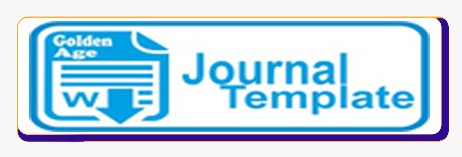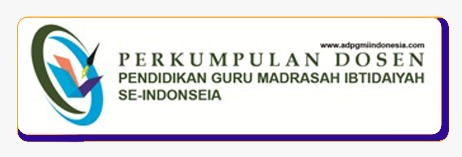TEORI BELAJAR HUMANISTIK DALAM PEMBELAJARAN BAHASA INDONESIA
 Abstract views: 821
,
Abstract views: 821
,
 pdf downloads: 534
pdf downloads: 534
Abstract
The writing of this article is expected to be able to contribute knowledge aimed at teachers especially at the elementary school level. Learning is a process of changing the behavior of students towards their environment, these changes can lead to better or in a bad direction. The background for writing this article is due to the application of Indonesian in grade one, especially speaking skills which are still lacking, this is because many students still use Javanese ngoko (not refined Javanese or not Javanese krama). In learning activities it is necessary to apply learning theory to support teaching and learning activities. One of the learning theories that can be integrated with learning Indonesian is the humanistic learning theory. In humanistic learning theory, educators guide students to instill values in behaving and speaking in a better direction, with the hope that students will get used to speaking Indonesian as the language of instruction in learning activities. Writing in this article with a qualitative method using library research. The data analysis technique obtained from the results of the documentation that has been analyzed is identified and conclusions are drawn. The results of writing this article prove that the application of humanistic learning theory can lead to changes in polite speech according to Indonesian language rules.
Keywords: Humanistic theory; Indonesian
Downloads
References
Fadhilah, M. N. (2021). Implementasi Teori Belajar Humanistik Terhadap Pembelajaran Bahasa Indonesia Di Kelas Iii A Mi Islamiyah Malang. 02(01), 23–32.
Farhrohman, O. (2017). Implementasi Pembelajaran Bahasa Indonesia di SD / MI. 23–34.
Hasan, N., & Hadiyansah, D. N. (2021). Hubungan Pendekatan Humanistik Untuk Meningkatkan Kreativitas Siswa Dalam Bahasa Inggris. Fakultas Sosial Dan Humaniora, Universitas Ibrahimy Situbondo, 1(1), 1–9.
Nasional, S., & Tugiati, T. (2019). Penggunaan Ejaan Bahasa Indonesia Sesuai Puebi. 325–327.
Puryanto, R. A., & Japa, I. G. N. (2021). Peningkatan Keterampilan Berbicara Bahasa Indonesia Subtema Kebersamaan Di Tempat Wisata Melalui Penerapan Metode Demonstrasi. 2(19), 27–32.
Ramadhan, R. (2019). Implementasi Pembelajaran Humanistik Dalam Pendidikan Karakter (Studi Multi Kasus di SD Sekolah Alam Insan Mulia Surabaya dan SD Yayasan Islam Malik Ibrahim Gresik).
Riyanton, M. (2017). Pendidikan Humanisme Dan Implementasinya Dalam Pembelajaran Bahasa Indonesia.
Sugiyono. (2014). Metode Penelitian Pendidikan pendekatan Kuantitatif, Kualitatif dan R&D. In Metode Penelitian Ilmiah.
Suparlan. (2020). Pembelajaran bahasa indonesia di sekoah dasar. STIT Palapa Nusantara Lombok NTB, 4, 245–258.
Wahab, G., & Rosnawati. (2021). Teori-Teori Belajar Dan Pembelajaran. In Paper Knowledge . Toward a Media History of Documents (Vol. 3, Issue April). http://repository.uindatokarama.ac.id/id/eprint/1405/1
Zulvira, R., Neviyarni, & Irdamurni. (2021). Karakteristik Siswa Kelas Rendah Sekolah Dasar. 5, 1846–1851.
Mubtadi: Jurnal pendidikan ibtidaiyah, adalah jurnal yang tidak berbasis komersial. tetapi memberikan lisensi kepada penulis atas karyanya. naskah penulis yang sudah di muat dapat dibuka oleh siapapun dan dapat diperguanakn oleh siapapun dengan catatan berbagi informasi tanpa dipungut baiaya apapun.



.jpg)










